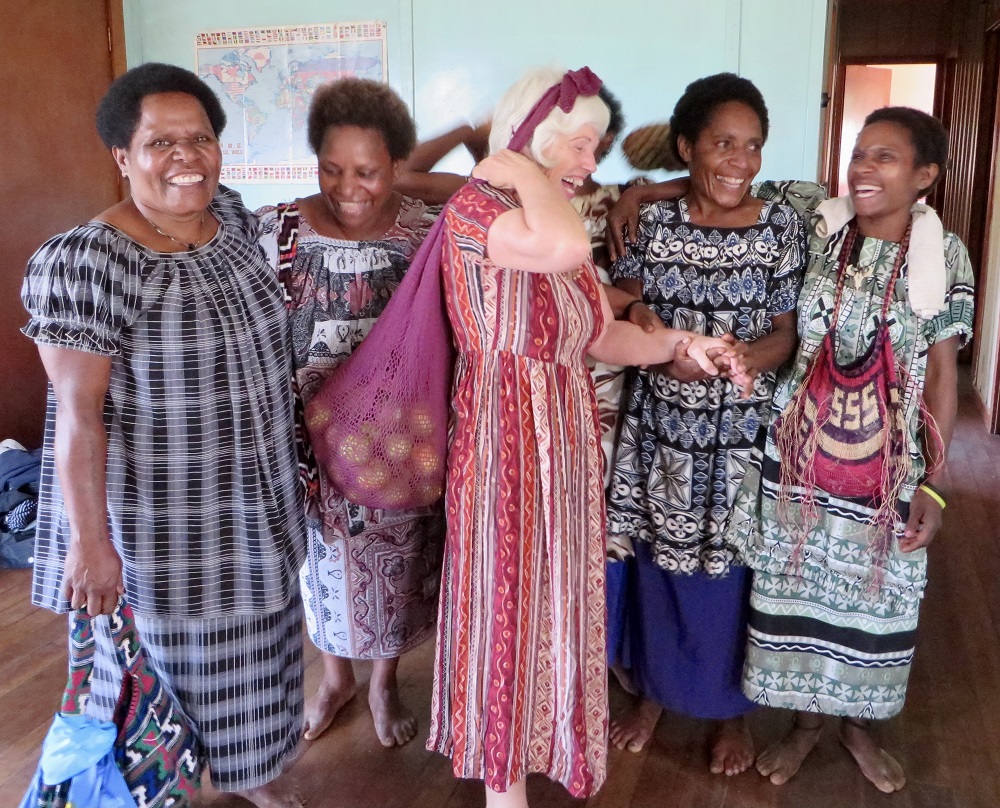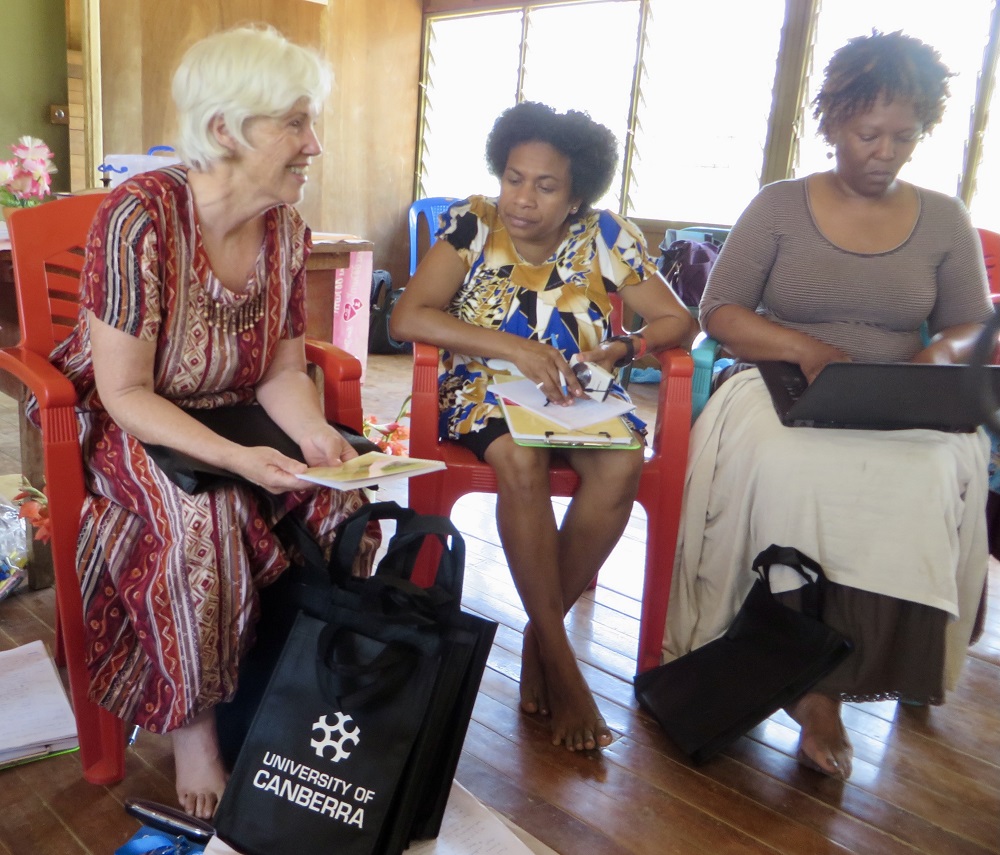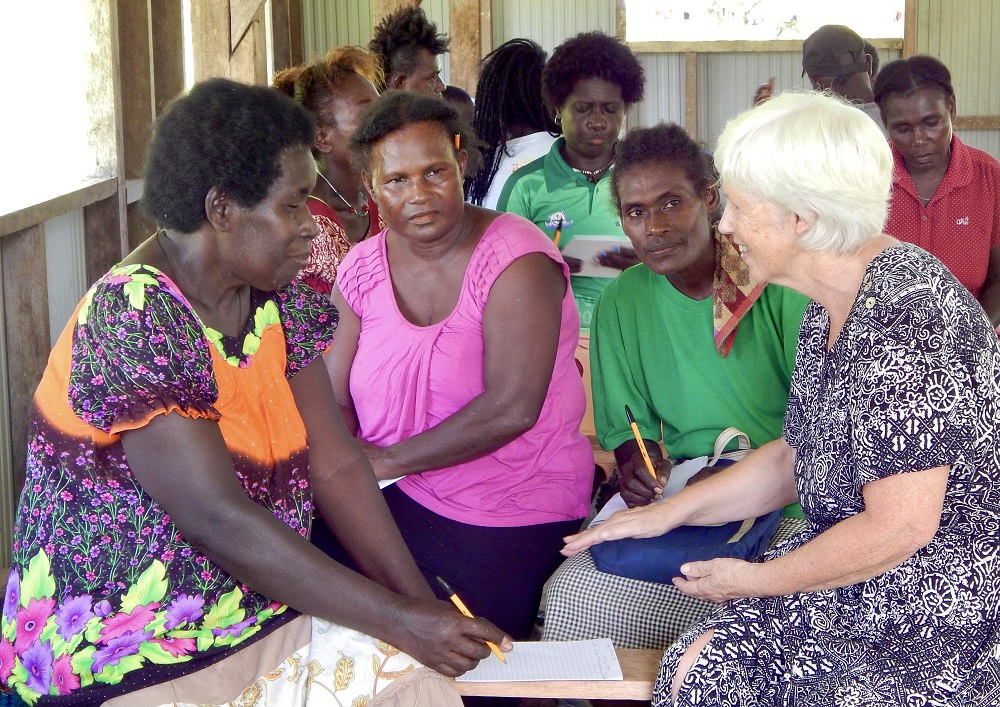Ideas, Progress & the Future
Five decades of education: Community Education Quietly Transforming Lives
Education has the power to transform communities. It can improve health, increase income, and forge connections. It can even save lives.
But there is no one-size-fits-all when it comes to community education. And no one knows this better than Professor Barbara Pamphilon, Associate Director of the Centre for Sustainable Communities (CSC) at the University of Canberra, whose career in adult education and community development spans decades.
Initially drawn to community education because of its multidisciplinary, learner-centred approach – a very new idea when she was beginning her career in the mid-70s – Barbara left behind her nursing training to work in community services with volunteers who were supporting at-risk families in Canberra.
Shortly afterwards, she began her health education degree at UC, then called the Canberra College of Advanced Education. “I found my tribe,” she laughs. “And I’ve never left them.”
Since then, as well as teaching in both undergraduate and postgraduate areas, Barbara has worked on a diverse array of projects both in Australia and throughout the Pacific Islands. She has developed new methods for the effective training of communities with low levels of education or where English is a second language, and was awarded the Member of the Order of Australia for significant service to higher education, and to the community in 2019.
Throughout her career, Barbara has continually witnessed the power of education to transform lives.
Her most recent work in Papua New Guinea (PNG) has seen her develop a training model in collaboration with PNG universities and NGOs to support farming families move from subsistence to planned farming in a gender equitable and sustainable way, empowering women and men with the skills and knowledge to improve their families’ lives.
And the material benefits are already evident.
“People are now moving out of poverty,” she says. “They’ve got sustainable income. They’ve got money to use for healthcare. They can pay the school fees. They have a roof on their house [and] a water tank. These are important things.”
But the transformation goes beyond material improvements.
“We've got feedback on how much happier men and women are living in a family that is more secure,” Barbara explains. “Many have said that their children are seeing a happy, peaceful family, and that's really important in a country where family-based violence is statistically significant.
“The thing that I find really rewarding is that men and women say they are now good friends.”
The most amazing result to come from these community education projects, known in PNG and across the Pacific as the Family Farm Teams program, has been what Barbara calls “the ripple effect”.
“Families who weren't part of the project have been saying to families who were part of our project , ‘Can you teach us?’,” Barbara says.
“Once farming families see the changes, they are healthier, more peaceful, then other farmers start to ask.”
This work hasn’t been without its challenges though.
Social issues like gender inequalities and family-based violence meant that Barbara and her teams needed to develop culturally-sensitive and practical approaches to training in order to ensure its usefulness in PNG.
Low levels of school education among communities also meant training needed to be adapted to offer practical, hands-on activities.
“We trialled and developed a whole lot of experiential learning activities that enabled people to learn without reading and writing,” Barbara says. “And they've got deep knowledge. They're very skilful farmers.”
This acknowledgement of local knowledge also plays an essential role in keeping families involved in the training, since participants feel valued and empowered to join in.
“You help people identify and value their strengths, and build on them,” she says. “So, it's the ‘glass half full’ approach, and you're topping it up.”
A respect for community knowledge and developing training based on learners’ needs and contexts, is a unique element of Barbara’s work – not only in PNG but across other projects, including within Australia.
This was particularly resonant during her health education work in Canberra during the HIV/AIDS Grim Reaper Campaign in the 1980s.
“There was a lot of misinformation and fear about HIV/AIDS so you had to understand each group and work from where people were at,” she says. “And you had to really understand and develop your learning materials, activities, and approaches from the people out. The issues were very different for parents, sex workers or young adults!”
“You go out and work with the different groups in ways to help them open up the topic, and ask the questions,” she explains. “And [you see] the person in their context. When we’re working with people, there’s no one model.”
This learner-centred approach to training is one of many changes to have occurred in the community education sector throughout Barbara’s career.
More recently, change has been particularly driven by the constantly evolving nature of technology.
“Technology is really the good, the bad, and the ugly,” Barbara laughs.
“For many marginalised groups, or people who can’t find any peers in their own area, [technology] can be hugely empowering, lifesaving and life-affirming,” she says.
The ability to deliver training remotely has also meant that Barbara can continue her work with Pacific Islanders despite COVID-19 restrictions.
“I can keep in contact with people we work with even in remote parts of the Pacific to learn how they're going. Free platforms help us share our successes, our learning and even photographs. Technology is absolutely fabulous for that,” she says.
However, she warns about the ubiquitousness of misinformation, the increasing sophistication of fake news and the importance of education in developing the critical discernment needed in today’s world of information overload.
“The lower your own education and critical thinking skills,” she says, “the more difficult it is for you to discern between a really well-spun article full of rubbish, and an equally well-written article based on fact.”
Like technology, adult and community education has evolved enormously throughout the decades of Barbara’s career. But one aspect of it hasn’t changed: its power to quietly but radically transform lives.
Words by Christina King, photos supplied.